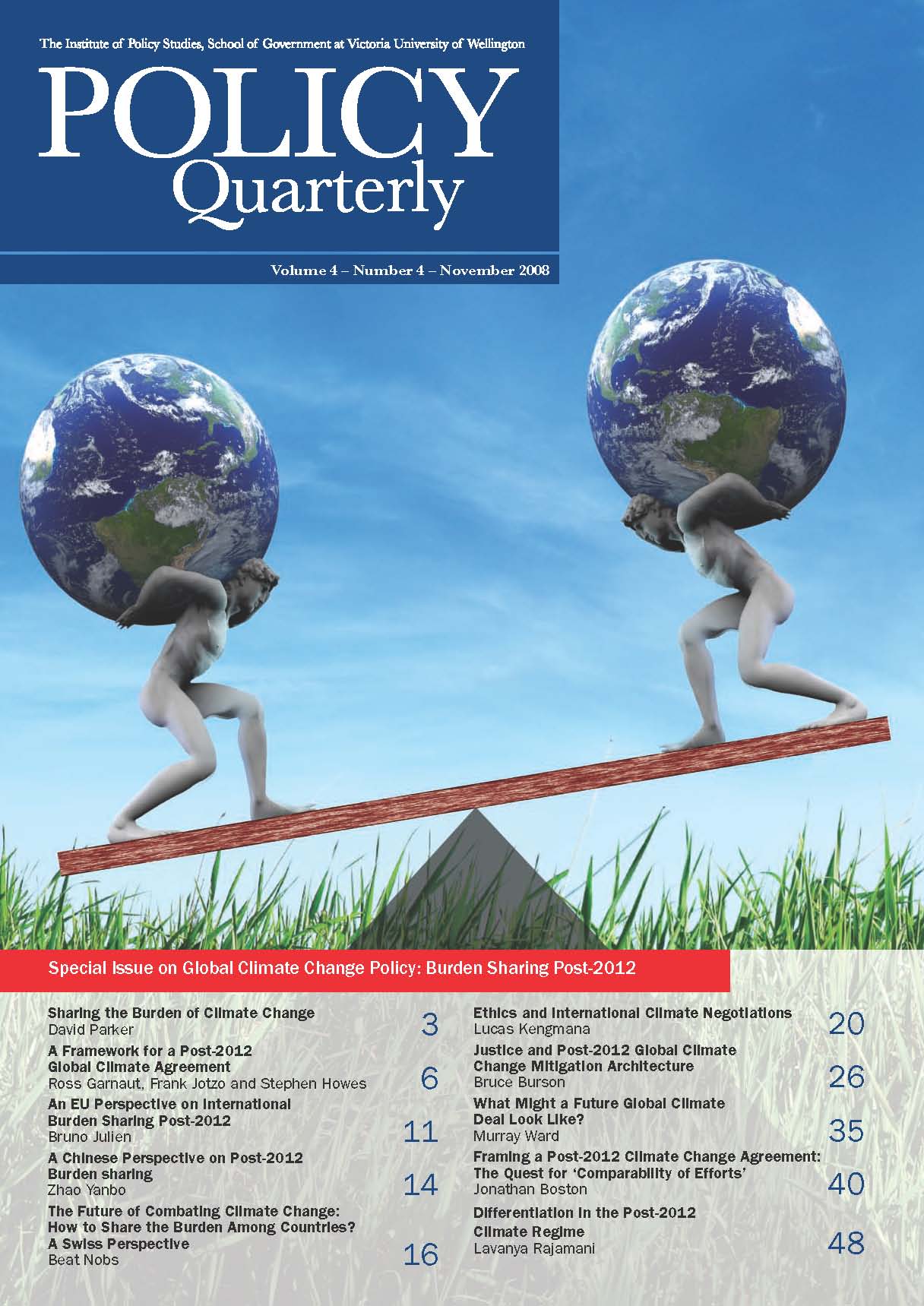An EU perspective on international burden sharing post-2012
DOI:
https://doi.org/10.26686/pq.v4i4.4276Keywords:
European Union (EU), emissions trading system (ETS), European Commission, CopenhagenAbstract
Climate change issues have come to the forefront of international diplomacy and will increasingly dominate policy discussions, both within our countries and among them.1 New Zealand, like the EU, has engaged with the battle on climate change and is currently grappling with the complexities of putting in place an emissions trading scheme. The aim of this article is, first, to explain how the EU is contributing to the fight against climate change. In particular, I want to highlight how we already differentiate efforts within the EU among member states and different sectors, setting a real example of what could be done. Then I wish to outline some core elements for global burden sharing to be negotiated at the Copenhagen conference to be held under the United Nations Framework Convention on Climate Change in late 2009.
Downloads
Downloads
Published
Issue
Section
License
Permission: In the interest of promoting debate and wider dissemination, the IGPS encourages use of all or part of the articles appearing in PQ, where there is no element of commercial gain. Appropriate acknowledgement of both author and source should be made in all cases. Please direct requests for permission to reprint articles from this publication to Policy-Quarterly@vuw.ac.nz.



